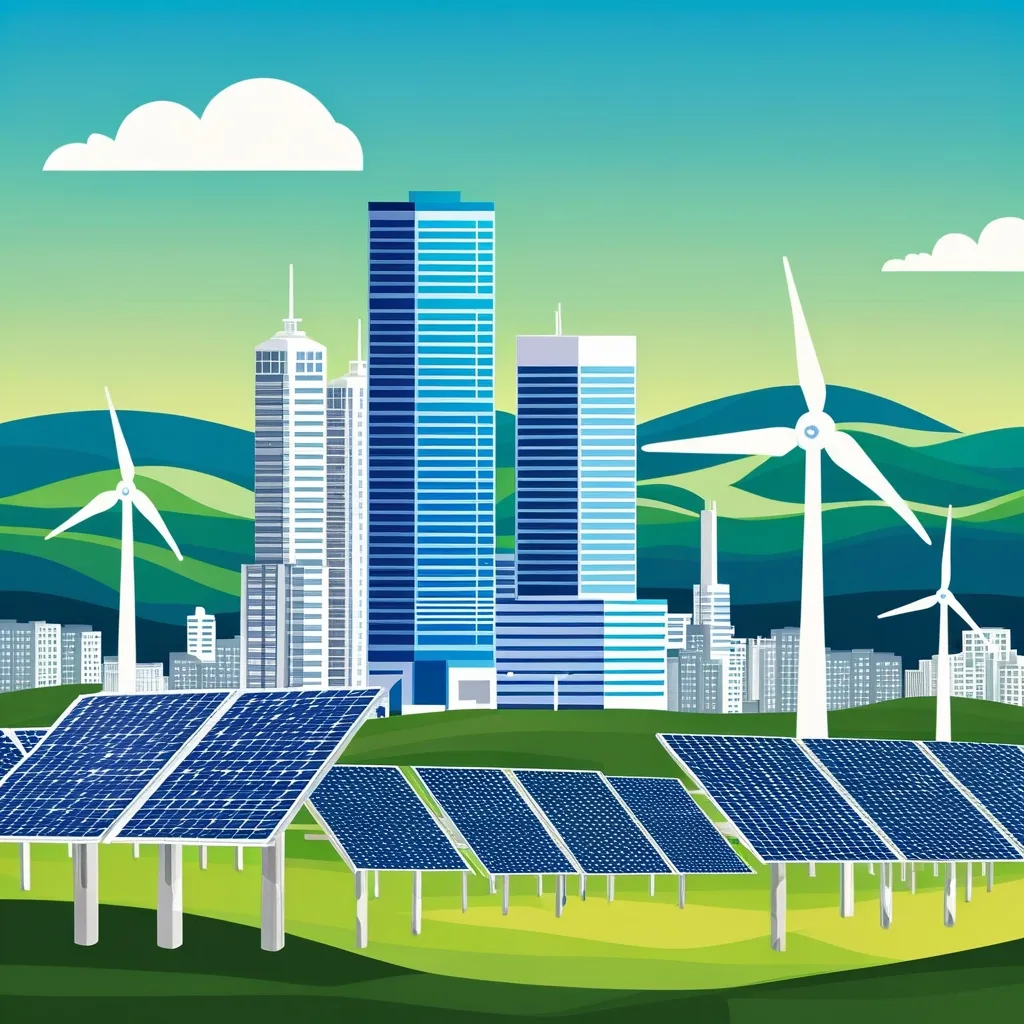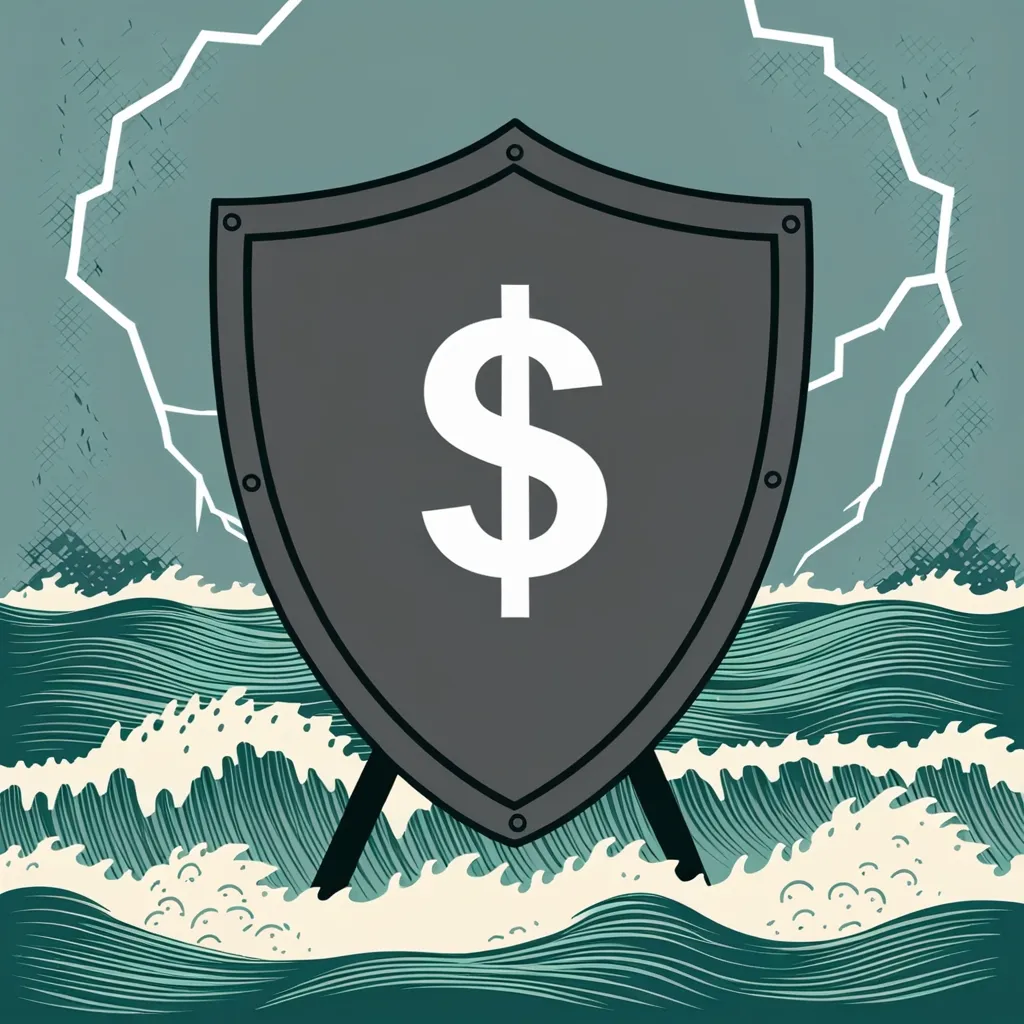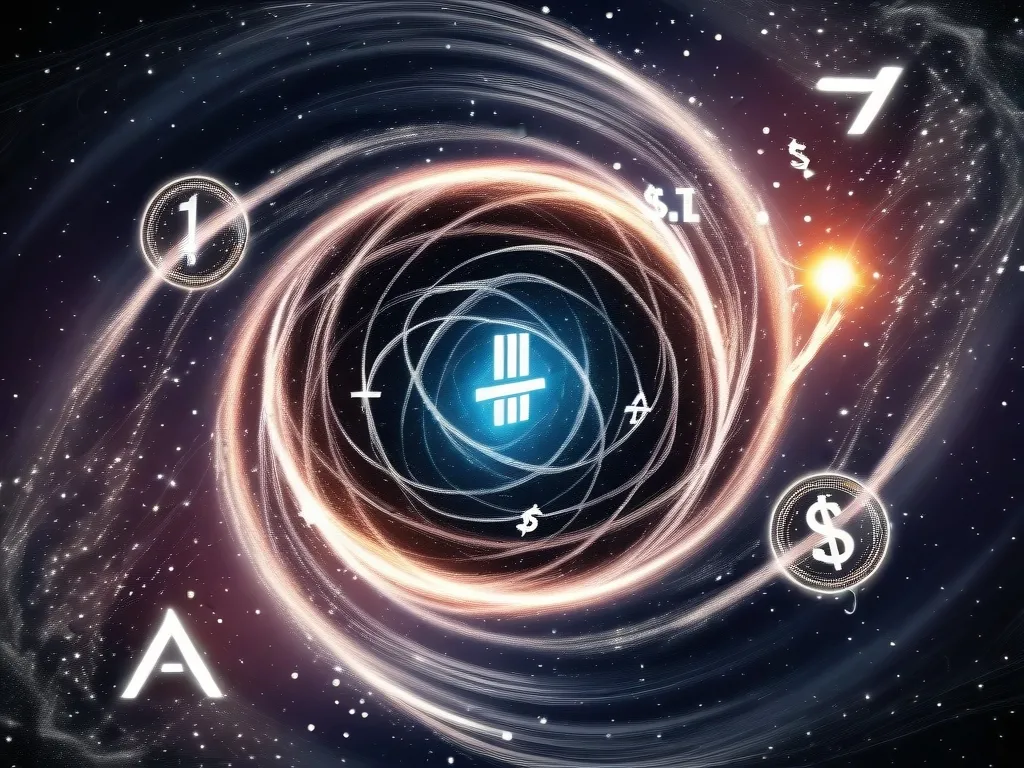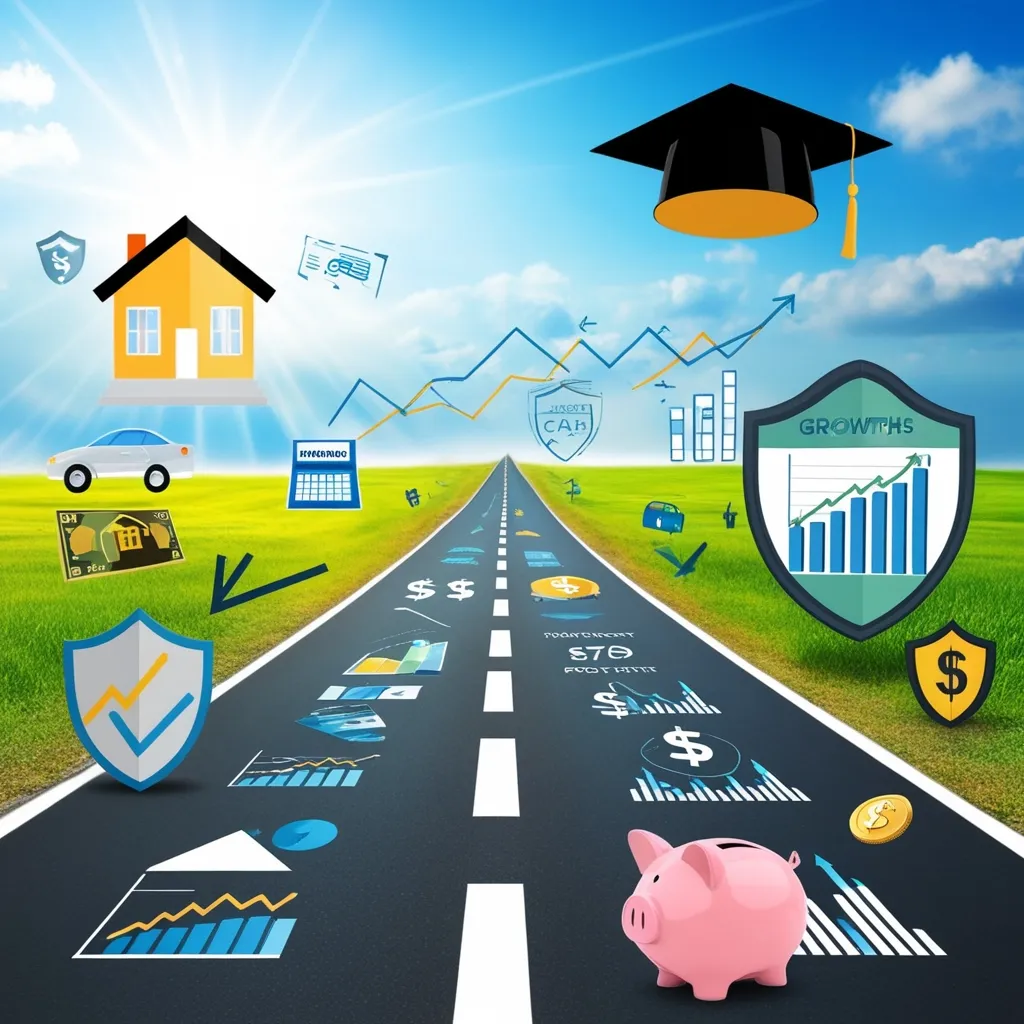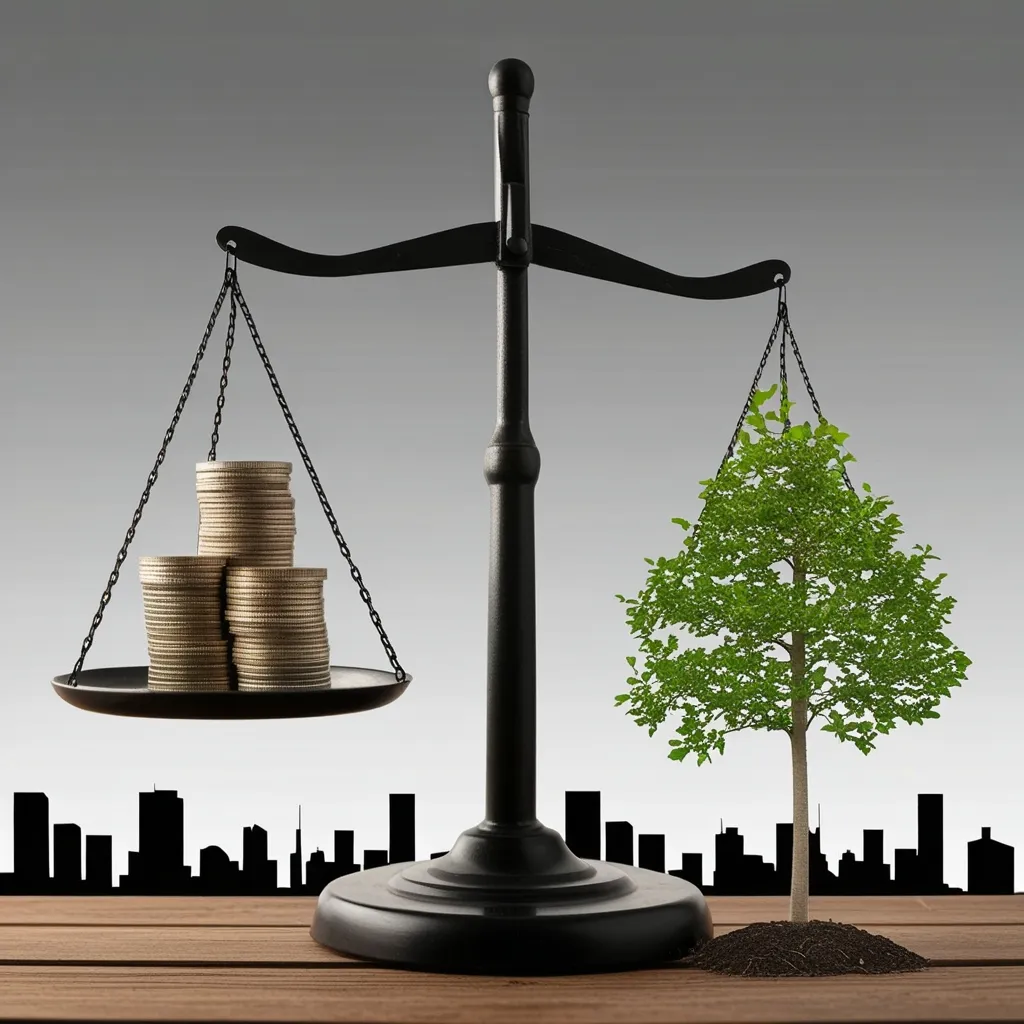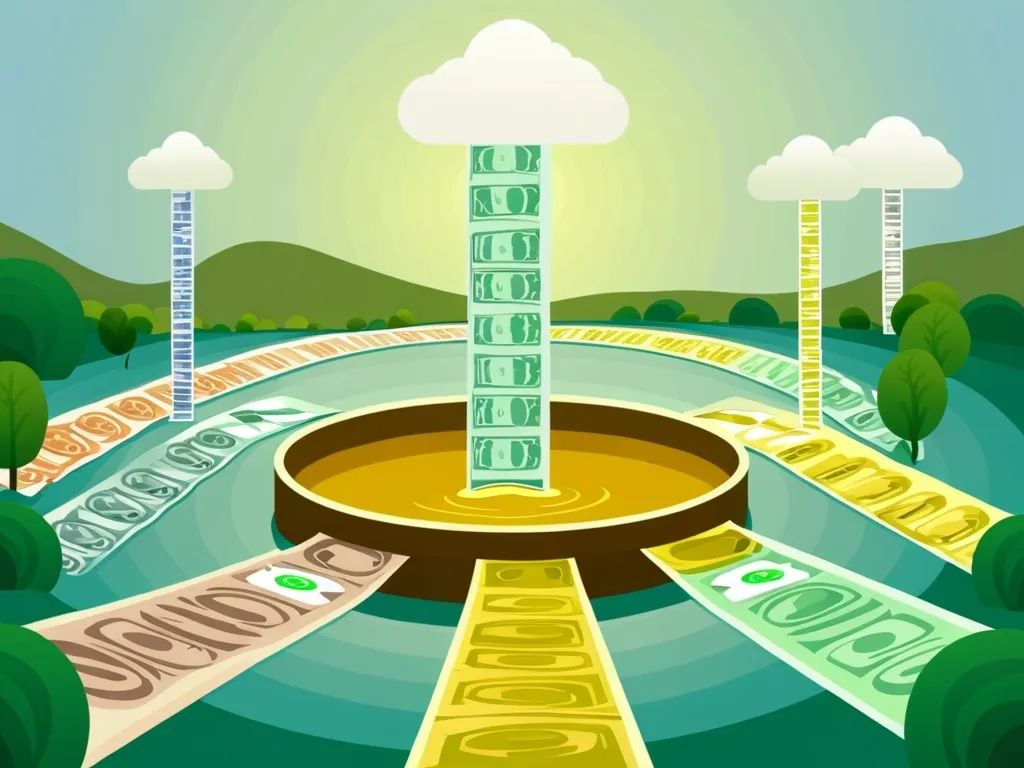Renewable Energy: The Engine of Economic Growth
Imagine a world where the air is cleaner, jobs are plentiful, and economies are thriving. This isn’t just a pipe dream - it’s the potential future that renewable energy promises. As we grapple with climate change and seek sustainable solutions, renewable energy is emerging as a powerhouse for economic growth.
Let’s dive into how this green revolution is reshaping our economic landscape. It’s not just about saving the planet (though that’s pretty important too); it’s about creating a robust, sustainable economy that works for everyone.
First off, let’s talk jobs. The renewable energy sector is a job-creating machine. We’re not just talking a handful of positions here and there. We’re looking at millions of new jobs worldwide. Solar panel installers, wind turbine technicians, energy efficiency experts - these are the careers of the future. And the best part? These jobs are popping up in both urban and rural areas, spreading economic benefits far and wide.
But it’s not just about quantity; it’s about quality too. Many of these green jobs offer good wages and opportunities for career growth. They’re the kind of jobs that can support families and build strong communities. And as the sector grows, so do the opportunities for innovation and entrepreneurship.
Now, let’s talk money. You might think that switching to renewable energy would be a drain on the economy, but the opposite is true. Studies show that increasing our use of renewable energy could give global GDP a serious boost. We’re talking about potentially adding trillions of dollars to the world economy. That’s not pocket change!
And it’s not just big businesses that benefit. Homeowners and small businesses can save big on energy costs by switching to renewables. Imagine slashing your electricity bill and having more money to spend on other things. That’s more cash in your pocket and more money circulating in the local economy.
But the economic benefits of renewable energy go beyond just creating jobs and saving money. It’s about building resilience into our economies. Think about it - when we rely on fossil fuels, we’re at the mercy of price fluctuations and supply disruptions. But with renewable energy, we’re tapping into resources that are, well, renewable. The sun’s going to keep shining, and the wind’s going to keep blowing, regardless of what’s happening in global politics or markets.
This energy security is a big deal for economic stability. When businesses can count on stable energy prices, they can plan for the future with more confidence. This leads to more investment, more growth, and a stronger economy overall.
And let’s not forget about innovation. The renewable energy sector is driving technological advancements at a breakneck pace. We’re seeing improvements in energy storage, smart grid technology, and energy efficiency. These innovations aren’t just good for the environment; they’re creating whole new industries and economic opportunities.
Now, you might be wondering about the environmental angle. After all, isn’t that the main reason we’re pushing for renewable energy? Well, yes, but here’s the kicker - those environmental benefits translate directly into economic benefits too.
By reducing carbon emissions, we’re mitigating the costs of climate change. We’re talking about avoiding damages from extreme weather events, reducing healthcare costs from air pollution, and preserving natural resources that our economies depend on. It’s like killing two birds with one stone - we’re protecting the environment and safeguarding our economic future at the same time.
But the benefits of renewable energy aren’t just felt at the national or global level. They’re making a difference in local communities too. Take community solar projects, for example. These initiatives allow multiple households or businesses to share the benefits of a single solar installation. It’s making clean energy accessible to people who might not otherwise be able to afford it, and it’s keeping energy dollars circulating in the local economy.
And it’s not just rural communities that are benefiting. Cities are getting in on the action too. Urban renewable energy projects are creating jobs, reducing air pollution, and making cities more livable. From solar panels on apartment buildings to wind turbines powering city infrastructure, renewable energy is reshaping our urban landscapes for the better.
Now, let’s talk about the global picture. The transition to renewable energy is creating new opportunities for international cooperation and trade. Countries with abundant renewable resources can become energy exporters, while others can benefit from importing clean energy. This new energy landscape is reshaping global economic relationships and creating opportunities for mutual benefit.
But it’s not all smooth sailing. The transition to renewable energy comes with challenges. It requires significant upfront investment, and some industries will need to adapt or risk being left behind. But here’s the thing - these challenges are also opportunities. They’re driving innovation, creating new industries, and pushing us to rethink how we do business.
So, what does this mean for you and me? Well, it means we’re living in exciting times. The shift to renewable energy is not just an environmental necessity; it’s an economic opportunity. Whether you’re a job seeker looking for a promising career path, an entrepreneur seeking new business opportunities, or just someone who wants to save money on their energy bills, the renewable energy revolution has something to offer.
And let’s not forget the bigger picture. By supporting the transition to renewable energy, we’re investing in a more sustainable, prosperous future for ourselves and for generations to come. We’re building an economy that works in harmony with the planet, rather than against it.
So, the next time you see a wind turbine spinning on the horizon or solar panels glinting on a rooftop, remember - you’re not just looking at a source of clean energy. You’re looking at an engine of economic growth, a creator of jobs, and a beacon of a more sustainable future.
The renewable energy revolution is here, and it’s powering more than just our homes and businesses. It’s powering our economies, our communities, and our future. And that’s something we can all get behind.
